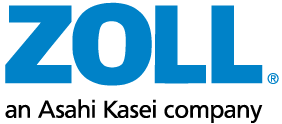October 24, 2013 - ZOLL LifeVest, AutoPulse, and Temperature Management Solutions to Be Showcased at TCT 2013
MEDIA CONTACT: |
Diane Egan |
ZOLL LIFEVEST, AUTOPULSE, AND TEMPERATURE MANAGEMENT SOLUTIONS TO BE SHOWCASED AT TCT 2013
October 24, 2013—CHELMSFORD, MASS.—ZOLL Medical Corporation, a manufacturer of medical devices and related software solutions, announced today that it will display the LifeVest® Wearable Defibrillator, the AutoPulse® Non-invasive Cardiac Support Pump, and ZOLL’s Intravascular Temperature Management (IVTM™) solution in booth #429 at the 2013 Transcatheter Cardiovascular Therapeutics (TCT) meeting October 29-November 1 at the Moscone Center in San Francisco.
Following a percutaneous coronary intervention (PCI) procedure, 1 in 5 post-acute myocardial infarction (AMI) patients have been shown to be at high risk of early mortality.1 The majority of mortality in AMI patients post-PCI occurs in the first three months—one out of every 10 high risk patients die, with about 60% of this mortality due to sudden cardiac arrest (SCA).1,2 Data has shown that in patients treated by the LifeVest Wearable Cardioverter Defibrillator, the median time to shock following revascularization is 14 days.3 Additionally, LifeVest use post-PCI is associated with an 85% reduction in total mortality at 90 days compared to a matched cohort of patients not prescribed the LifeVest.4
The LifeVest is worn by patients at risk for SCA, providing protection during their changing condition and while permanent SCA risk has not been established. It is used to protect a wide range of patient conditions or situations, including following a recent myocardial infarction, or following coronary revascularization.
The LifeVest is lightweight and easy to wear, allowing patients to return to their activities of daily living, while having the peace of mind that they are protected from SCA. The LifeVest continuously monitors the patient’s heart and, if a life-threatening heart rhythm is detected, the device delivers a treatment shock to restore normal heart rhythm.
The LifeVest is covered by most health plans in the United States, including commercial, state, and federal plans.
The AutoPulse is an automated, portable chest compression device. It is the only mechanical CPR system to have shown improved survival in comparative clinical trials. The AutoPulse more than tripled survival compared to typical CPR during witnessed shockable arrests.5 Most recently a meta-analysis of available clinical findings found that the likelihood of circulation returning was 62% higher with use of the AutoPulse when compared to manual compressions while a parallel analysis showed no significant change with a conventional piston-driven device.6
ZOLL’s Intravascular Temperature Management (IVTM) solution offers health care providers the power and control they need to rapidly, safely, and effectively manage the core body temperature of critically ill or surgical patients. The Thermogard XP® delivers accurate, easy-to-use and cost-effective control for both cooling and warming applications.
About ZOLL Medical Corporation
ZOLL Medical Corporation, an Asahi Kasei Group company, develops and markets medical devices and software solutions that help advance emergency care and save lives, while increasing clinical and operational efficiencies. With products for defibrillation and monitoring, circulation and CPR feedback, data management, fluid resuscitation, and therapeutic temperature management, ZOLL provides a comprehensive set of technologies that help clinicians, EMS and fire professionals, and lay rescuers treat victims needing resuscitation and critical care. For more information, visit www.zoll.com.
About Asahi Kasei
The Asahi Kasei Group is a diversified group of companies led by holding company Asahi Kasei Corp., with operations in the chemicals and fibers, homes and construction materials, electronics, and health care business sectors. Its health care operations include devices and systems for critical care, dialysis, therapeutic apheresis, transfusion, and manufacture of biotherapeutics, as well as pharmaceuticals, diagnostic reagents, and nutritional products. With more than 25,000 employees around the world, the Asahi Kasei Group serves customers in more than 100 countries. For more information, visit www.asahi-kasei.co.jp/asahi/en/.
Copyright © 2013 ZOLL Medical Corporation. All rights reserved. AutoPulse, IVTM, LifeVest, Thermogard XP, and ZOLL are trademarks or registered trademarks of ZOLL Medical Corporation in the United States and/or other countries. Asahi Kasei is a registered trademark of Asahi Kasei Corporation. All product names are the property of their respective owners.
1 Halkin, A, et al. Prediction of Mortality After Primary Percutaneous Coronary Intervention for Acute Myocardial Infarction: CADILLAC Risk Score. Journal of the American College of Cardiology, 2005; 45: 1397-1405.
2 Stone, G, et al. “Prevention of Sudden Cardiac Arrest Post PTCA in High-Risk Patients.” April 2011. Available at http://www.theheart.org/article/1202823.do.
3 Epstein, A, et al. Wearable Cardioverter-Defibrillator Use in Patients Perceived to be at High Risk Early Post Myocardial Infarction, Journal of the American College of Cardiology 2013, doi:10.1016/j.jacc.2013.05.086.
4 Zishiri, E, et al. Early Risk of Mortality after Coronary Artery Revascularization in Patients with Left Ventricular Dysfunction and Potential Role of the Wearable Cardioverter Defibrillator. Circulation: Arrhythmia and Electrophysiology; 2013;6: 117-128.
5 Wik L, et al. The impact of CPR duration on survival to discharge between integrated AutoPulse-CPR and manual–CPR during out-of-hospital cardiac arrest of presumed cardiac origin. Resuscitation. 2012;83:e17
6 Westfall et al. Mechanical versus manual chest compressions in out-of-hospital-cardiac arrest. Critical Care Medicine. 2013;41:1-7.
